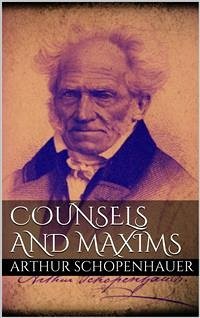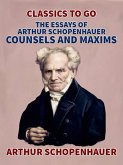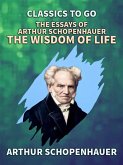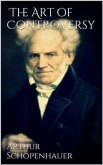In making his way through life, a man will find it useful to be ready and able to do two things: to look ahead and to overlook: the one will protect him from loss and injury, the other from disputes and squabbles.No one who has to live amongst men should absolutely discard any person who has his due place in the order of nature, even though he is very wicked or contemptible or ridiculous. He must accept him as an unalterable fact—unalterable, because the necessary outcome of an eternal, fundamental principle; and in bad cases he should remember the words of Mephistopheles: es muss auch solche Käuze geben—there must be fools and rogues in the world.
Bitte wählen Sie Ihr Anliegen aus.
Rechnungen
Retourenschein anfordern
Bestellstatus
Storno









